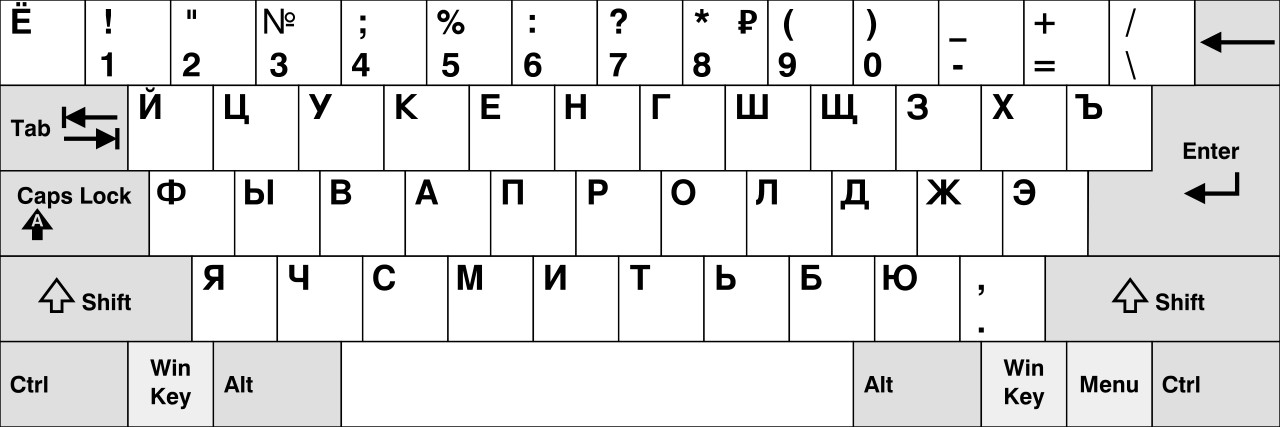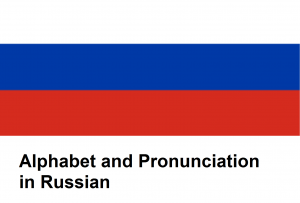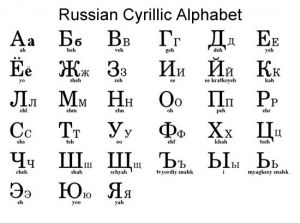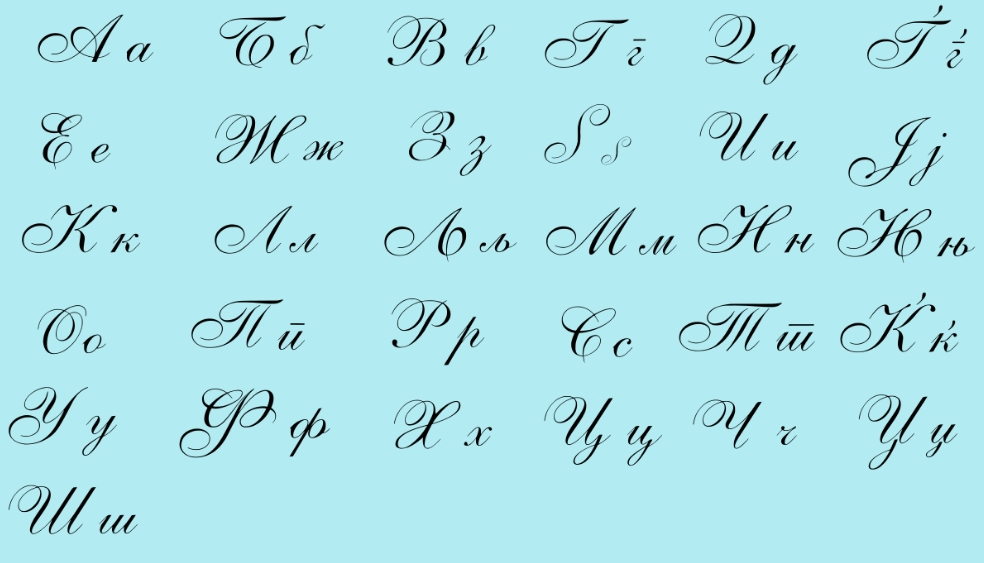Difference between revisions of "Language/Russian/Pronunciation/Alphabet-and-Pronunciation"
| Line 15: | Line 15: | ||
{| class="wikitable" | {| class="wikitable" | ||
|Caps | |||
|Minisculs | |||
|Name | |||
|Prononciation IPA | |||
|Transcription | |||
|English Equivalent | |||
|Sound | |||
|Letter Name in Russian | |||
|Example | |||
|Example (audio) | |||
|- | |- | ||
|А | |А | ||
| Line 36: | Line 36: | ||
| | | | ||
{| class="wikitable" | {| class="wikitable" | ||
| | |а́том | ||
|} | |} | ||
| | | | ||
| Line 50: | Line 50: | ||
| | | | ||
{| class="wikitable" | {| class="wikitable" | ||
| | |бато́н | ||
|} | |} | ||
| | | | ||
| Line 64: | Line 64: | ||
| | | | ||
{| class="wikitable" | {| class="wikitable" | ||
| | |ва́режки | ||
|} | |} | ||
| | | | ||
| Line 78: | Line 78: | ||
| | | | ||
{| class="wikitable" | {| class="wikitable" | ||
| | |гру́ша | ||
|} | |} | ||
| | | | ||
| Line 92: | Line 92: | ||
| | | | ||
{| class="wikitable" | {| class="wikitable" | ||
| | |ды́ня | ||
|} | |} | ||
| | | | ||
| Line 106: | Line 106: | ||
| | | | ||
{| class="wikitable" | {| class="wikitable" | ||
| | |ежеви́ка | ||
|} | |} | ||
| | | | ||
| Line 120: | Line 120: | ||
| | | | ||
{| class="wikitable" | {| class="wikitable" | ||
| | |ёж | ||
|} | |} | ||
| | | | ||
| Line 134: | Line 134: | ||
| | | | ||
{| class="wikitable" | {| class="wikitable" | ||
| | |жук | ||
|} | |} | ||
| | | | ||
| Line 148: | Line 148: | ||
| | | | ||
{| class="wikitable" | {| class="wikitable" | ||
| | |замо́к | ||
|} | |} | ||
| | | | ||
| Line 162: | Line 162: | ||
| | | | ||
{| class="wikitable" | {| class="wikitable" | ||
| | |икра́ | ||
|} | |} | ||
| | | | ||
| Line 176: | Line 176: | ||
| | | | ||
{| class="wikitable" | {| class="wikitable" | ||
| | |йо́гурт | ||
|} | |} | ||
| | | | ||
| Line 190: | Line 190: | ||
| | | | ||
{| class="wikitable" | {| class="wikitable" | ||
| | |клубни́ка | ||
|} | |} | ||
| | | | ||
| Line 204: | Line 204: | ||
| | | | ||
{| class="wikitable" | {| class="wikitable" | ||
| | |лимо́н | ||
|} | |} | ||
| | | | ||
| Line 218: | Line 218: | ||
| | | | ||
{| class="wikitable" | {| class="wikitable" | ||
| | |мали́на | ||
|} | |} | ||
| | | | ||
| Line 232: | Line 232: | ||
| | | | ||
{| class="wikitable" | {| class="wikitable" | ||
| | |носки́ | ||
|} | |} | ||
| | | | ||
| Line 248: | Line 248: | ||
| | | | ||
{| class="wikitable" | {| class="wikitable" | ||
| | |о́вощи | ||
|} | |} | ||
| | | | ||
| Line 262: | Line 262: | ||
| | | | ||
{| class="wikitable" | {| class="wikitable" | ||
| | |пе́рец | ||
|} | |} | ||
| | | | ||
| Line 276: | Line 276: | ||
| | | | ||
{| class="wikitable" | {| class="wikitable" | ||
| | |ры́ба | ||
|} | |} | ||
| | | | ||
| Line 290: | Line 290: | ||
| | | | ||
{| class="wikitable" | {| class="wikitable" | ||
| | |стул | ||
|} | |} | ||
| | | | ||
| Line 304: | Line 304: | ||
| | | | ||
{| class="wikitable" | {| class="wikitable" | ||
| | |торт | ||
|} | |} | ||
| | | | ||
| Line 318: | Line 318: | ||
| | | | ||
{| class="wikitable" | {| class="wikitable" | ||
| | |у́дочка | ||
|} | |} | ||
| | | | ||
| Line 332: | Line 332: | ||
| | | | ||
{| class="wikitable" | {| class="wikitable" | ||
| | |фру́кты | ||
|} | |} | ||
| | | | ||
| Line 346: | Line 346: | ||
| | | | ||
{| class="wikitable" | {| class="wikitable" | ||
| | |хво́я | ||
|} | |} | ||
| | | | ||
| Line 360: | Line 360: | ||
| | | | ||
{| class="wikitable" | {| class="wikitable" | ||
| | |ци́фры | ||
|} | |} | ||
| | | | ||
| Line 374: | Line 374: | ||
| | | | ||
{| class="wikitable" | {| class="wikitable" | ||
| | |ча́шка | ||
|} | |} | ||
| | | | ||
| Line 388: | Line 388: | ||
| | | | ||
{| class="wikitable" | {| class="wikitable" | ||
| | |ша́пка | ||
|} | |} | ||
| | | | ||
| Line 402: | Line 402: | ||
| | | | ||
{| class="wikitable" | {| class="wikitable" | ||
| | |щётка | ||
|} | |} | ||
| | | | ||
| Line 414: | Line 414: | ||
|Letter before is hard | |Letter before is hard | ||
|"tvyordiy znahk" | |"tvyordiy znahk" | ||
| | |съесть | ||
| | | | ||
|- | |- | ||
| Line 427: | Line 425: | ||
|Like "i" in ill | |Like "i" in ill | ||
|"i" | |"i" | ||
| | |ты | ||
| | | | ||
|- | |- | ||
| Line 441: | Line 436: | ||
|Letter before is soft | |Letter before is soft | ||
|"myagkeey znahk" | |"myagkeey znahk" | ||
| | |есть | ||
| | | | ||
|- | |- | ||
| Line 455: | Line 447: | ||
|Like "e" in pet | |Like "e" in pet | ||
|"eh" | |"eh" | ||
| | |экра́н | ||
| | | | ||
|- | |- | ||
| Line 469: | Line 458: | ||
|Like "u" in use or university | |Like "u" in use or university | ||
|"yoo" | |"yoo" | ||
| | |ю́бка | ||
| | | | ||
|- | |- | ||
| Line 483: | Line 469: | ||
|Like "ya" in yard. | |Like "ya" in yard. | ||
|"yah" | |"yah" | ||
| | |блоко | ||
| | | | ||
|} | |} | ||
Revision as of 19:46, 30 December 2022
Привет! Russian lovers 😎 !
In today's lesson, you will learn how to write the different letters of the Russian alphabet (normal and cursive), how to pronounce these letters whether it is through the International Phonetic Alphabet (IPA), or through a video with the pronunciation of the letters by a native speaker. You will also find at the end of this lesson a virtual keyboard to be able to type each special character of this language.
Happy learning!
Russian Alphabet and IPA Pronunciation
Russian is a Slavic language, such as Polish or Czech, written with the Cyrillic alphabet, inspired by the Greek alphabet.
| Caps | Minisculs | Name | Prononciation IPA | Transcription | English Equivalent | Sound | Letter Name in Russian | Example | Example (audio) | |
| А | а | а | /a/ | a | А а | Like "a" in car | "ah" |
|
||
| Б | б | бэ | /b/, /bʲ/ | b | B b | Like "b" in bat | "beh" |
|
||
| В | в | вэ | /v/, /vʲ/ | v | V v | Like "v" in van | "veh" |
|
||
| Г | г | гэ | /ɡ/, /gʲ/ | g | G g | Like "g" in go | "geh" |
|
||
| Д | д | дэ | /d/, /dʲ/ | d | D d | Like "d" in dog | "deh" |
|
||
| Е | е | е | /je/, / ʲe/, /e/ | e | YE ye | Like "ye" in yet | "yeh" |
|
||
| Ё | ё | ё | /jo/, / ʲɵ/ | ë | YO yo | Like "yo" in yonder | "yo" |
|
||
| Ж | ж | жэ | /ʐ/ | ž | Zh zh | Like "s" in measure or pleasure or like "g" in beige (the colour) | "zheh" |
|
||
| З | з | зэ | /z/, /zʲ/ | z | Z z | Like "z" in zoo | "zeh" |
|
||
| И | и | и | /i/, / ʲi/,, /ɨ/ | i | EE ee | Like "ee" in see | "ee" |
|
||
| Й | й | и краткое | /j/ | j | I i or Y y | like "y" in boy or toy | "ee kratkoyeh" |
|
||
| К | к | ка | /k/, /kʲ/ | k | K k | Like "k" in kitten, "c" in cat. | "kah" |
|
||
| Л | л | эл, эль | /l/, /lʲ/ | l | L l | Like "l" in light | "ehl" |
|
||
| М | м | эм | /m/, /mʲ/ | m | M m | Like "m" in mat | "ehm" |
|
||
| Н | н | эн | /n/, /ɲ/ | n | N n | Like "n" in no | "ehn" |
|
||
| О | о | о | /o/, /ɐ/ | o | Stressed: O o
Unstressed: A a |
Like "o" in bore
Like "a" in car |
"oh" |
|
||
| П | п | пэ | /p/, /pʲ/ | p | P p | Like "p" in pot | "peh" |
|
||
| Р | р | эр | /r/, /rʲ/ | r | R r | Like "r" in run (rolled) | "ehr" |
|
||
| С | с | эс | /s/, /sʲ/ | s | S s | Like "s" in sam | "ehs" |
|
||
| Т | т | тэ | /t/, /tʲ/ | t | T t | Like "t" in tap | "teh" |
|
||
| У | у | у | /u/ | u | U u | Like "oo" in boot | "oo" |
|
||
| Ф | ф | эф | /f/, /fʲ/ | f | F f | Like "f" in fat | "ehf" |
|
||
| Х | х | ха | /x/, /xʲ/ | x | H h, KH kh | Like "h" in hello or like the "ch" in Scottish 'loch' or German 'Bach' | "khah" |
|
||
| Ц | ц | цэ | /t͡s/ | c | TS ts | Like "ts" in bits | "tseh" |
|
||
| Ч | ч | че | /t͡ɕ/ | č | CH ch | Like "ch" in chip | "cheh" |
|
||
| Ш | ш | ша | /ʂ/ | š | SH sh (hard) | Like "sh" in shut | "shah" |
|
||
| Щ | щ | ща | /ɕɕ/ | šč | SH sh (soft) | Like "sh" in sheep | "schyah" |
|
||
| Ъ | ъ | твёрдый знак | '' | Hard Sign | Letter before is hard | "tvyordiy znahk" | съесть | |||
| Ы | ы | ы | /ɨ/ | y | I i | Like "i" in ill | "i" | ты | ||
| Ь | ь | мягкий знак | / ʲ/ | ' | Soft Sign | Letter before is soft | "myagkeey znahk" | есть | ||
| Э | э | э | /e/ | è | E e | Like "e" in pet | "eh" | экра́н | ||
| Ю | ю | ю | /ju/, / ʲu/ | ju | YU yu | Like "u" in use or university | "yoo" | ю́бка | ||
| Я | я | я | /ja/, / ʲa/ | ja | YA ya | Like "ya" in yard. | "yah" | блоко |
Notes
The Russian l is velar, it is pronounced as English well or as the old French chevals: one pronounced then s of the plural (that is why the pronunciation was then modified in "cheva-or "Then" chevo "writes Chevaux)
At the end of the word, the sound consonants become deaf, as in German, they pronounce then:
- b > p
- v > f
- g > k
- d > t
- z > s
The Russian has 5 vocalic phonemes noted by 10 graphemes:
| a | e | i | o | u | |
| а | э | ы | о | у | After a hard consonant |
| я | е | и | ё | ю | After a soft consonant or yod |
NOTE: If Russian word contains 'ё', the accent is always on this vowel. Therefore, the accent mark is not placed above 'ё'.
The use of the letter 'ё' is mandatory in texts with consistently placed accent marks, in books for young children (including textbooks for elementary school students), in textbooks for foreigners. In ordinary printed texts, it`s written in cases where a misreading of the word is possible, when it`s necessary to indicate the correct pronunciation of a rare word or to prevent a speech error. The letter 'ё' should also be written in proper names. In other cases, the use of 'ё' is optional.
Examples
(In brackets the transcription & bracketed phonetics)
| ад (ad) [at] Hell | яд (jad) [jat] poison |
| мыло (mylo) [mɨlo] soap | мило (milo) [mjilo] nice |
| лук (luk) [luk] onion | люк (ljuk) [ljuk] hatch |
These wet sounds are not necessarily transcribed in French. Thus the name of the first president of Russia was Борис Ельцин in Russian, Boris Yeltsin in English and French: Boris Yeltsin (but pronouncing "Yeltsin").
Italic characters
The cursive letters which are significantly different from the normal printed version are noted in bold.
Those are worth learning because they are often used and look like the hand-written form of Russian.
| А а | Б б | В в | Г г | Д д | Е е | Ё ё | Ж ж | З з | И и | Й й | К к | Л л | М м | Н н | О о | П п | Р р | С с | Т т | У у | Ф ф | Х х | Ц ц | Ч ч | Ш ш | Щ щ | Ъ ъ | Ы ы | Ь ь | Э э | Ю ю | Я я |
| А а | Б б | В в | Г г | Д д | Е е | Ё ё | Ж ж | З з | И и | Й й | К к | Л л | М м | Н н | О о | П п | Р р | С с | Т т | У у | Ф ф | Х х | Ц ц | Ч ч | Ш ш | Щ щ | Ъ ъ | Ы ы | Ь ь | Э э | Ю ю | Я я |
|---|
Cursive Letters (hand writing
Watch the video below to learn how to write the cursive language letters of the Russian alphabet:
Russian Keyboard
Real Russian Keyboard
This is what a Russian keyboard looks like:

Transform your keyboard to write Cyrillic
This video explains how you can write Russian/Cyrillic letter stickers on your native keyboard with the use of Russian letter sticker:
Russian Online Virtual Keyboard


